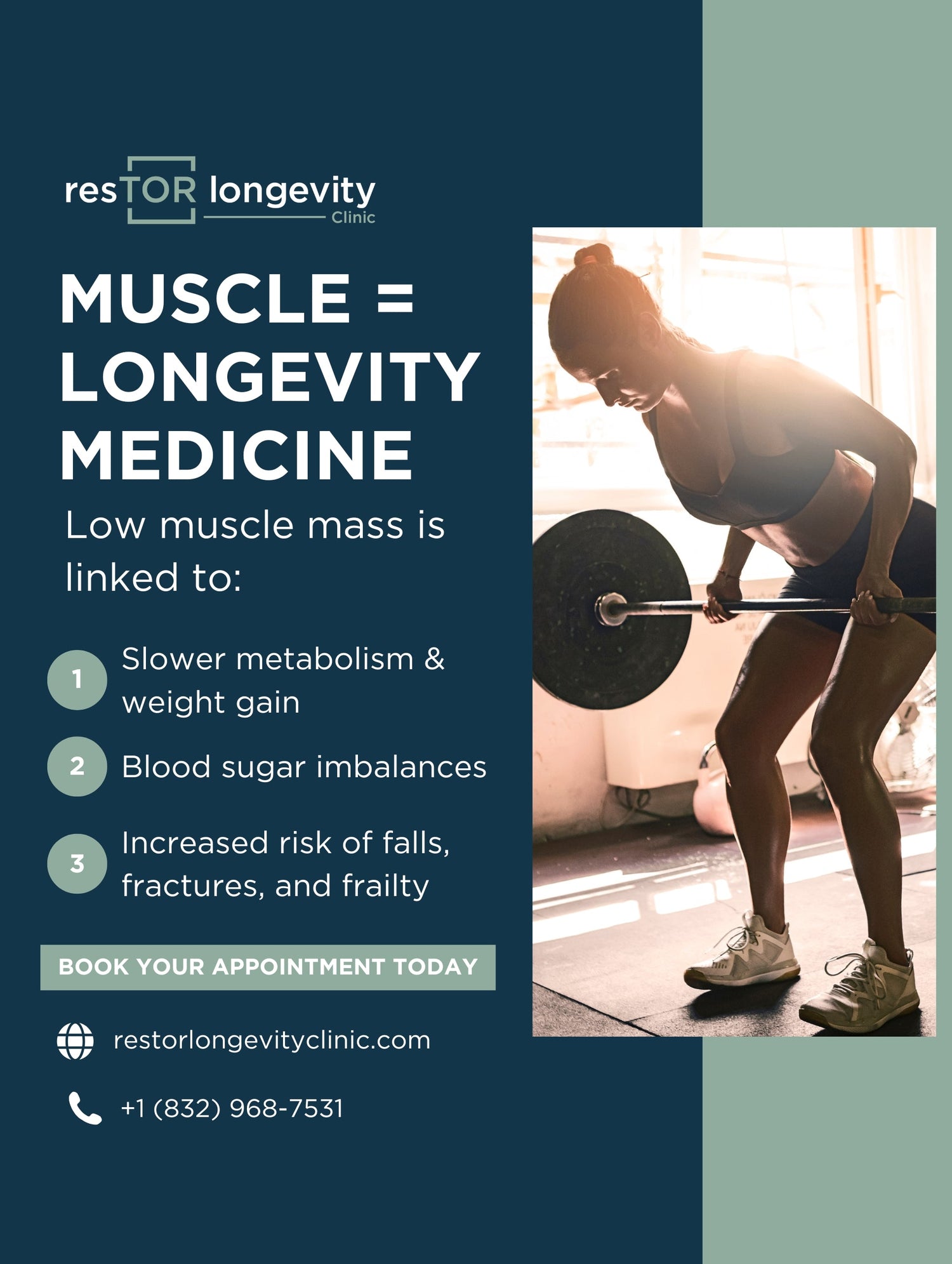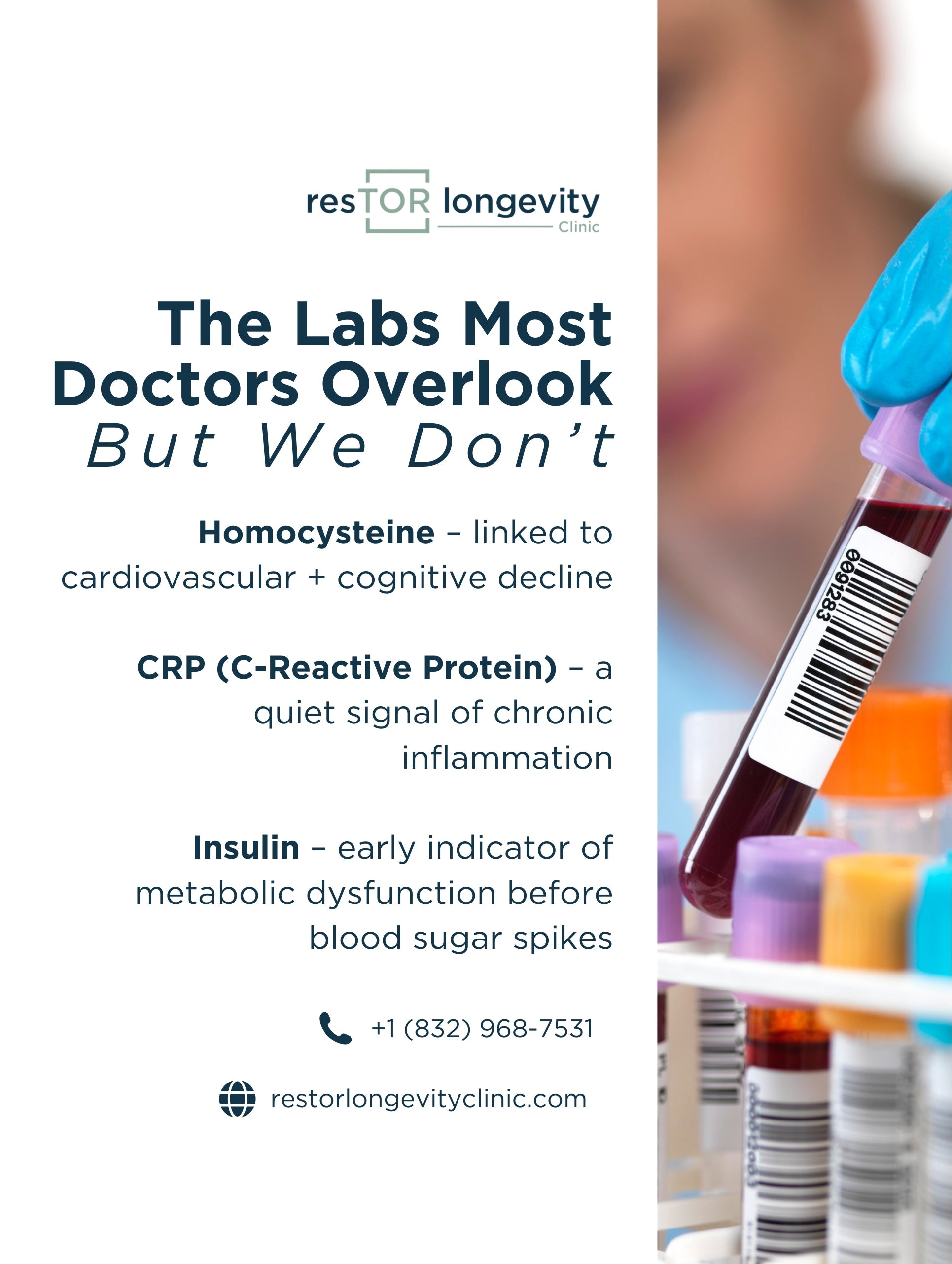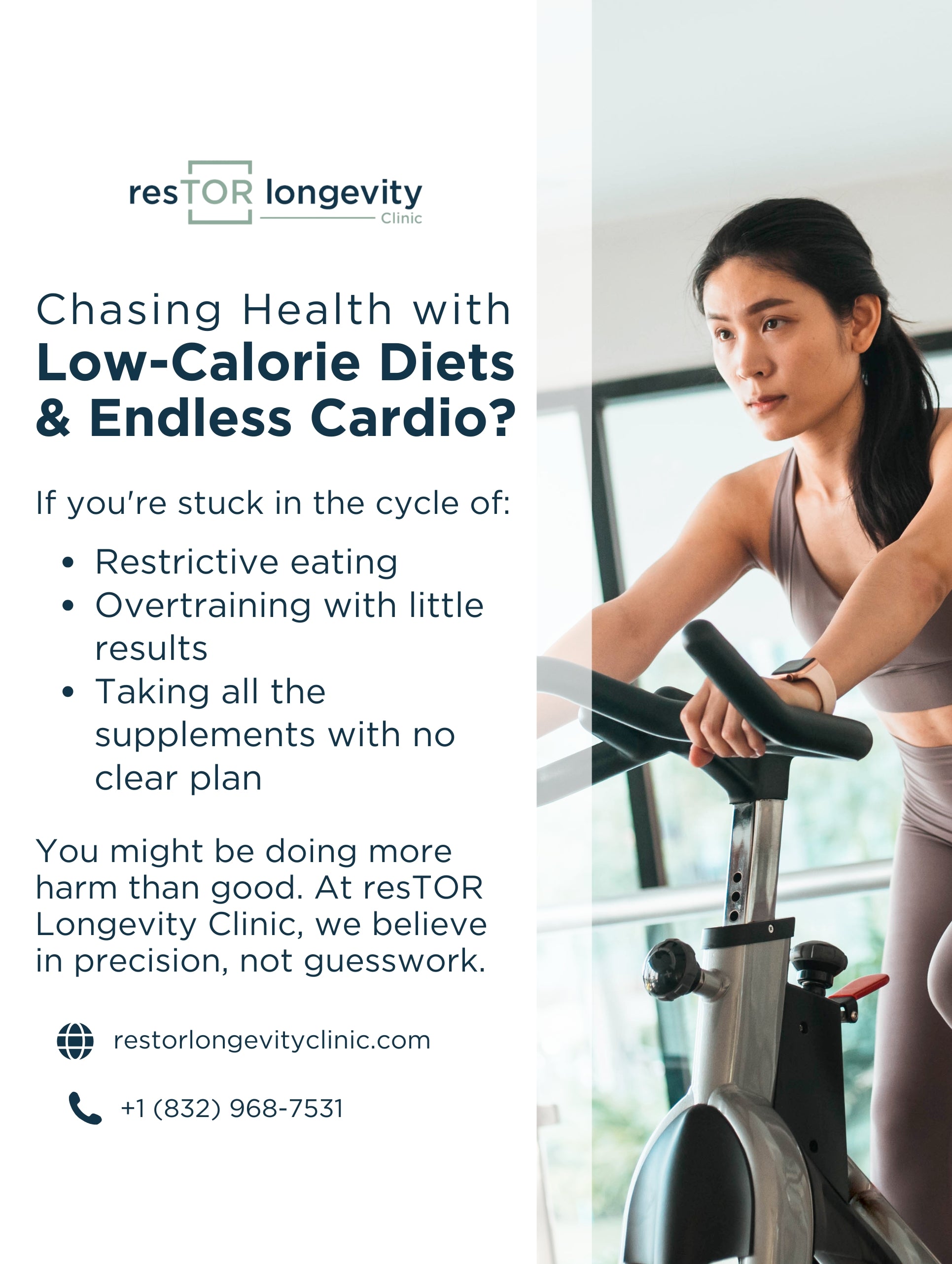Muscle = Longevity Medicine
When most people think about living longer, they focus on the heart, brain, or maybe diet. But one of the strongest and most overlooked predictors of how well you age is something far more tangible: muscle.
At resTOR Longevity Clinic, Dr. Greg Burzynski considers muscle mass a foundational biomarker of vitality and longevity. It’s not just about looking toned or feeling strong—your muscle tissue acts like medicine for nearly every system in your body.
And yet, muscle loss often goes unnoticed until it’s too late.
Why Muscle Matters More Than You Think
Starting in your 30s, you naturally begin to lose muscle—a process called sarcopenia. By your 70s, you may have lost up to 50% of your muscle mass if nothing is done to prevent it.
This decline doesn’t just affect your strength—it impacts:
-
Metabolism
-
Blood sugar control
-
Bone health
-
Cognition
-
Recovery & immune function
In short, muscle keeps you functional, protected, and resilient.
The Hidden Risks of Low Muscle Mass
Even if your weight is “normal,” you can still have low muscle mass. This condition—sometimes referred to as “skinny fat” or sarcopenic obesity—is linked to a wide range of health issues, including:
1. Slower Metabolism & Weight Gain
Muscle is metabolically active tissue. The more you have, the more calories you burn at rest. When muscle declines, metabolism slows—leading to stubborn fat gain, particularly around the belly.
2. Blood Sugar Imbalances
Muscle acts as a sponge for glucose. When you lose muscle, your ability to manage blood sugar weakens, increasing your risk for insulin resistance, prediabetes, and type 2 diabetes.
3. Frailty, Falls & Fractures
Low muscle is directly linked to fall risk, fractures, and poor balance—all of which become more dangerous with age. Maintaining muscle helps keep you mobile and independent for longer.
4. Weakened Immune & Hormonal Health
Muscle helps regulate inflammation and plays a role in hormone production, including testosterone and growth hormone. It also supports immune cell function and recovery from illness or injury.
How We Measure and Protect Your Muscle at resTOR
At resTOR Longevity Clinic, Dr. Burzynski takes muscle health seriously. During your initial evaluation, we may use advanced tools like:
-
DEXA or body composition scans
-
Functional strength assessments
-
Lab markers tied to muscle breakdown and repair
-
Metabolic rate testing
This allows us to create a personalized strategy to build and preserve lean muscle—even if you’re not an athlete.
Muscle-Building Is Medicine—Here’s How We Support It
We don’t just send you to the gym and wish you luck. At resTOR, muscle optimization is a clinical intervention. Here’s how we support it:
Hormone Optimization
Testosterone, growth hormone, thyroid, and DHEA all affect muscle maintenance. When imbalances are present, we restore them safely and strategically.
Targeted Nutrition
We design customized nutrition plans with optimal protein intake, amino acid support, and anti-inflammatory foods that promote lean tissue growth and recovery.
Peptide Therapy & NAD+
These advanced therapies help stimulate mitochondrial function, muscle repair, and regenerative pathways that decline with age.
Smart Exercise Programming
Not all exercise builds muscle effectively. We guide you toward resistance training protocols that match your fitness level and recovery capacity—helping you build muscle safely at any age.
The Bottom Line: Muscle Is More Than Strength
It’s time to rethink what muscle really means.
At resTOR Longevity Clinic, we believe muscle is longevity medicine. It’s protective, regenerative, and foundational to how well you age—from your bones to your brain.
As Dr. Greg Burzynski puts it:
“Muscle isn’t just a sign of fitness—it’s a sign of resilience. It tells us how well your body is aging and how prepared you are for the decades ahead.”



